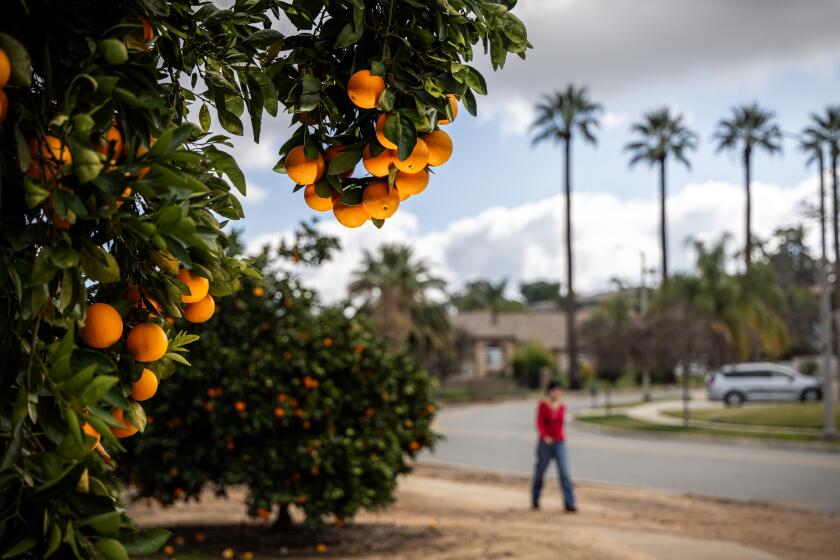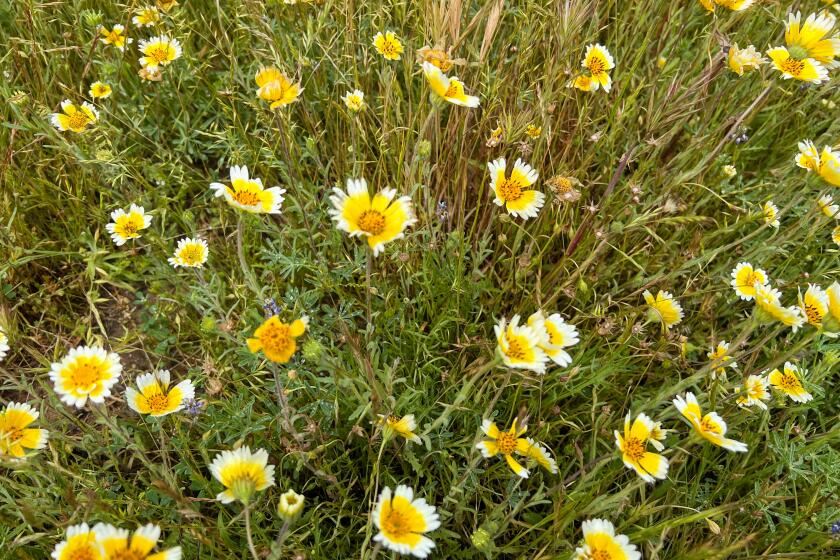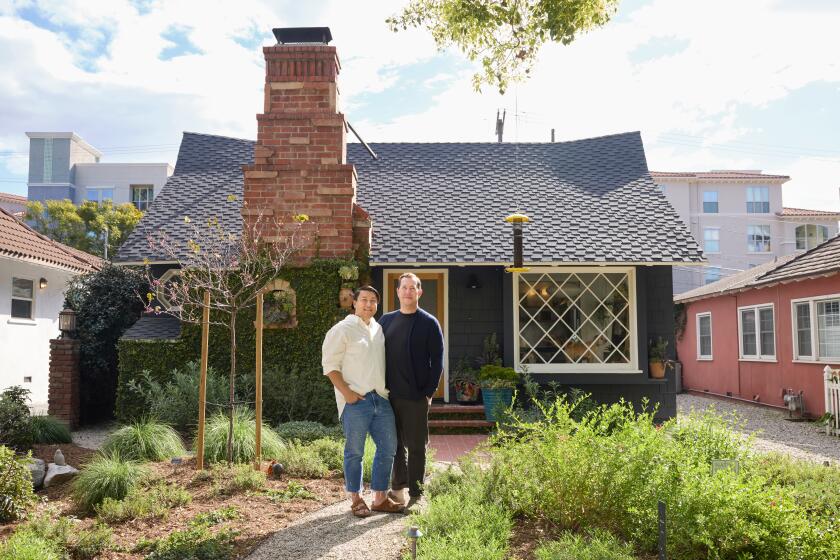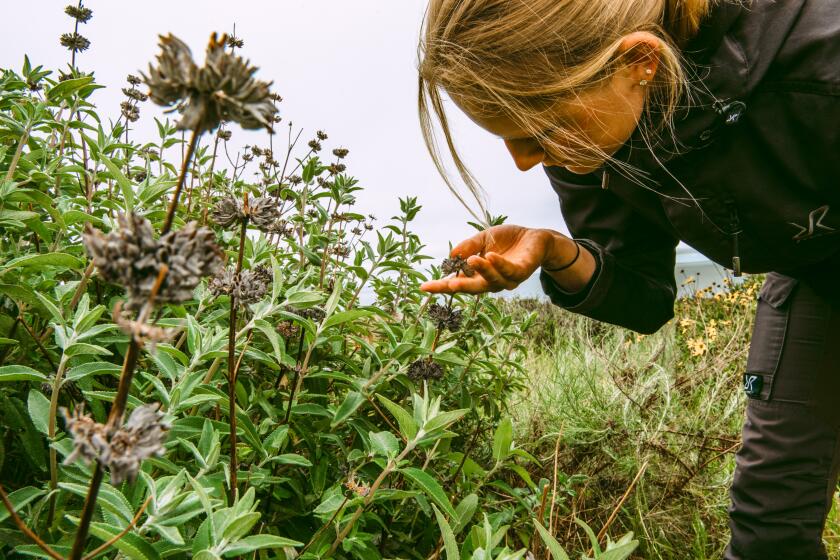Red tape snarls compost backer
Composting fruit and vegetable scraps has become a darling of the sustainability movement, and government officials sing its praises, but drop the wrong carrot tops or lettuce leaves on a backyard compost pile and you could be breaking state law.
“Overall, composting is great. We love it,” said Andrew Hughan, spokesman for the California Integrated Waste Management Board.
However, to compost without a solid waste facility permit, you must meet certain requirements, including that the composting material must be generated onsite unless it is placed in a vessel that controls airborne emissions. That means a person who takes a neighbor’s apple peels or wilted spinach and drops them on a compost pile, or into a homemade bin, could be cited.
It’s pretty unlikely that will happen, Hughan said, explaining, “We have bigger fish to fry.”
But it’s not impossible.
Tara Kolla said she was doing a good thing for her Silver Lake Farms business while doing the right thing for the planet by filling a garbage can each week with produce scraps from a nearby restaurant and dumping them into her compost.
A neighbor did not see it that way and complained about the compost, which Kolla has in two wood boxes covered with black plastic.
“I didn’t put it here to offend anyone. I put it here because it’s a work area,” Kolla said one morning as she showed a visitor her half-acre urban farm, where she grows flowers as well as some other crops to sell at farmers markets in Echo Park, Hollywood and Silver Lake.
In August, Kolla received a letter from the Los Angeles Local Enforcement Agency telling her to “cease and desist” composting food waste that was not generated at her home. The letter was signed by David Thompson, the agency’s program supervisor, who declined to talk on the record. But a city spokeswoman said there would be no additional action taken if there are no more complaints.
At issue was where the material came from and where it went.
Using a commercially made compost bin, which generally looks a lot like a garbage can, could let a composter off the hook, because, Hughan said, those meet the requirement for a composting container that controls airborne emissions. (Kolla said an environmental lawyer tried unsuccessfully to get her bins declared permissible.)
Some coffee shops, including the local chain Groundwork, give away used grounds, which can be spread directly on gardens or used in compost. And many vendors are happy to give away their scraps.
“It was really the perfect solution because she was using it locally, and I didn’t have to do anything except make sure the cooks knew to separate things,” said Corina Weibel, chef and co-owner of Canele, the restaurant that had been supplying Kolla with scraps such as cornhusks. “It’s just silly that Tara has been unable to take it.”
The shops and vendors, Hughan said, are not breaking the law. But anyone who takes the materials could be.
There are websites and classes to teach people how to let potato peels, orange rinds and other scraps rot and become a soil conditioner rich in nutrients. Los Angeles has an online guide to composting, which says on its cover, “Save the Planet in Your Own Backyard.”
In part because of Kolla’s situation, Hughan said, the staff at the Waste Board is looking at the law to consider changes. “There has been a fair amount of discussion in the building about this,” he said.
He called the problem a question of “the letter of the law vs. the spirit of the law.”
Improper composting can create odors and attract insects and animals, Hughan said. But the state does not want to discourage proper composting.
He did not know of anyone other than Kolla who had been cited. And a spokeswoman for the city said she also knew of no similar citations.
If Kolla’s two compost bins were full, she said, they would hold 200 cubic feet of compost. That is much smaller than the 500-cubic-yard limit allowed by state law without a permit. Kolla said she has not pursued a permit “on principle,” and these days makes do with her own scraps for composting.
She scooped out a handful of compost and said, “This is the cause of all the trouble, perfectly beautiful, good, rich, black gold.”
--




